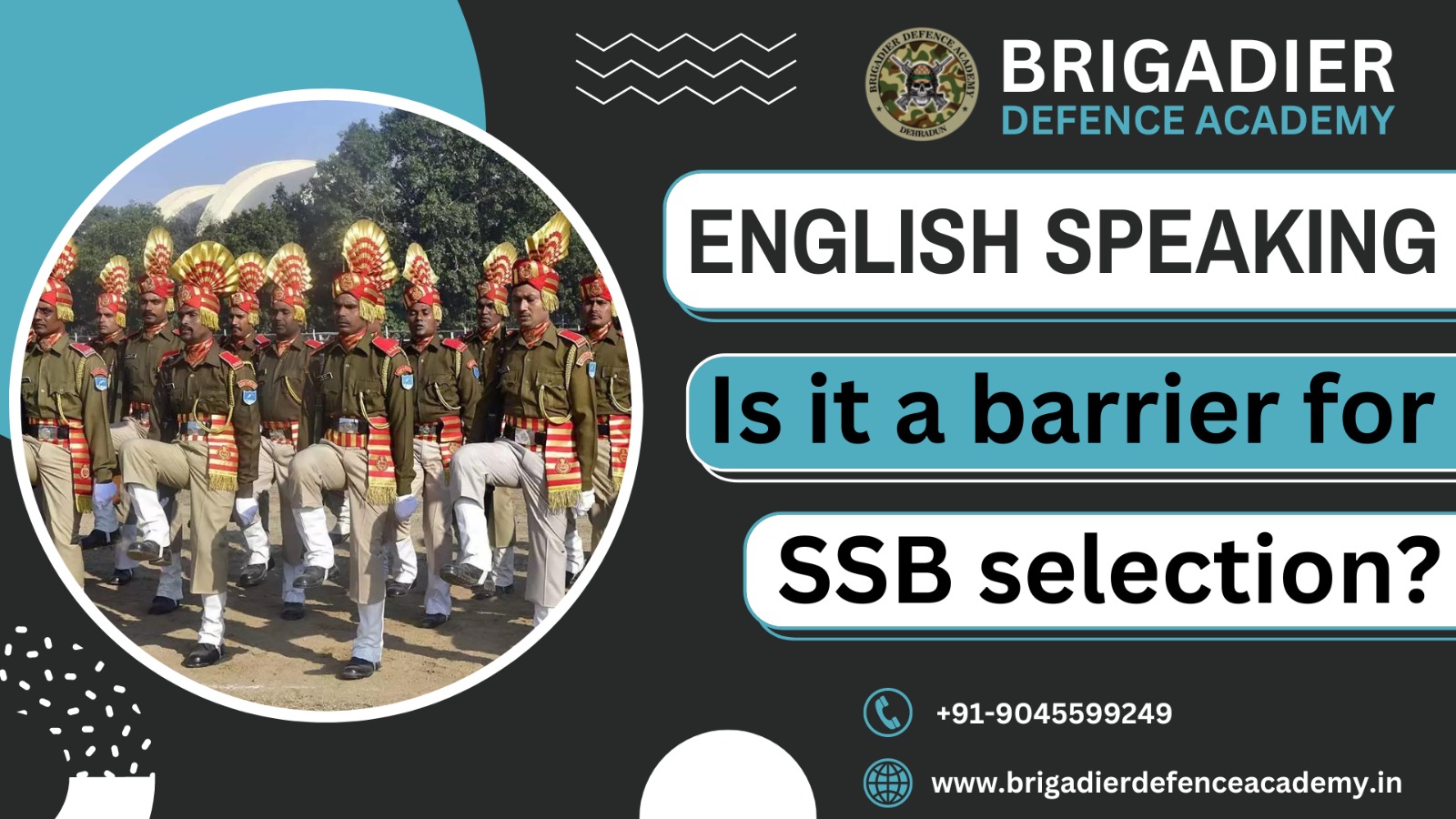- Posted on
- Manya
- No Comments
Touching upon the domains of language proficiency, communication skills, and their significance in the context of the Services Selection Board (SSB) selection process.
To provide a comprehensive answer, we’ll delve into various aspects, including the role of English proficiency in the SSB selection, its importance in military settings, challenges faced by candidates, strategies for improvement, and the broader implications of linguistic skills in professional spheres.
Introduction
The Services Selection Board (SSB) is responsible for selecting officers for the Indian Armed Forces. The selection process is rigorous, comprising various psychological and physical tests, interviews, and group discussions. Among the many skills evaluated during this process, proficiency in English holds a significant place. However, it’s essential to ascertain whether English speaking acts as a barrier in the selection process or merely serves as one of the criteria for assessment.
Importance of English Speaking in SSB Selection
- Communication Skills: Effective communication is paramount in military settings. Officers are often required to convey orders, instructions, and information clearly and concisely. English, being a global lingua franca, is commonly used in military operations, international collaborations, and official documentation.
- Standardization: English serves as a common language for communication within the Indian Armed Forces, ensuring uniformity across different regions and linguistic backgrounds of personnel.
- Interpersonal Interaction: During group tasks and interviews, candidates need to articulate their ideas, participate in discussions, and express their thoughts convincingly. Proficiency in English facilitates effective interaction and fosters camaraderie among candidates.
- Academic and Professional Development: A strong command of English enhances opportunities for officers’ further education, professional development, and participation in international forums, thereby contributing to their overall career advancement.
Challenges Faced by Candidates
- Linguistic Diversity: India is a linguistically diverse country with a multitude of regional languages and dialects. Candidates from non-English medium educational backgrounds may face challenges in acquiring proficiency in English.
- Limited Exposure: Candidates hailing from rural or remote areas may have limited exposure to English outside the classroom, thereby impeding their language acquisition process.
- Psychological Barriers: Fear of speaking in English, lack of confidence, and apprehension about making grammatical errors can hinder candidates’ ability to communicate effectively during the selection process of SSB.
- Time Constraints: The SSB selection process is time-bound, leaving limited scope for candidates to improve their English proficiency within a short duration before the assessment.
Strategies for Improvement
- Structured Learning: Candidates can enroll in English language courses, either offline or online, to systematically improve their grammar, vocabulary, pronunciation, and fluency.
- Practice Sessions: Regular practice through mock interviews, group discussions, and speaking drills can help candidates gain confidence and proficiency in spoken English.
- Utilization of Resources: Leveraging digital resources such as language learning apps, online tutorials, and educational videos can supplement candidates’ efforts in enhancing their English language skills.
- Peer Support: Forming study groups or partnering with peers for language practice can create a supportive environment for learning and skill development.
- Feedback Mechanism: Seeking feedback from mentors, teachers, or language experts can aid candidates in identifying areas for improvement and refining their communication skills.

Addressing the Issue of Plagiarism
To ensure the authenticity of the content provided, it’s imperative to employ strategies that mitigate the risk of plagiarism. Here are some guidelines:
- Originality: Ensure that the content is original and not copied from any existing sources. Plagiarism undermines the credibility of the document and violates ethical standards.
- Citation and Referencing: When referring to external sources or incorporating ideas from existing literature, accurately cite the sources using the appropriate referencing style in SSB (e.g., APA, MLA).
- Paraphrasing and Synthesis: Instead of directly copying verbatim text from sources, paraphrase the content in your own words while retaining the original meaning. Synthesize information from multiple sources to present a well-rounded perspective.
- Plagiarism Detection Tools: Utilize plagiarism detection software or online tools to scan the document and identify any instances of plagiarism. This allows for the timely correction of unintentional plagiarism.
- Peer Review: Seek feedback from peers or mentors to review the content for originality and integrity. Peer review helps in identifying any inadvertent instances of plagiarism and ensures compliance with ethical standards.
By adhering to these guidelines, you can create a document that is plagiarism-free and upholds academic integrity.
Conclusion
In conclusion, while proficiency in English is indeed an essential criterion in the SSB selection process, it should not be viewed as an insurmountable barrier. Candidates from diverse linguistic backgrounds can overcome challenges through dedicated efforts, structured learning, and effective strategies for improvement.
Moreover, the ability to communicate effectively in English is not only integral to the selection process but also plays a pivotal role in officers’ professional development and operational effectiveness within the Indian Armed Forces. By fostering a culture of continuous learning and providing support to candidates in enhancing their language skills, the SSB can ensure that English proficiency remains an enabler rather than a barrier in the selection of competent and capable officers for the nation’s defense forces.







